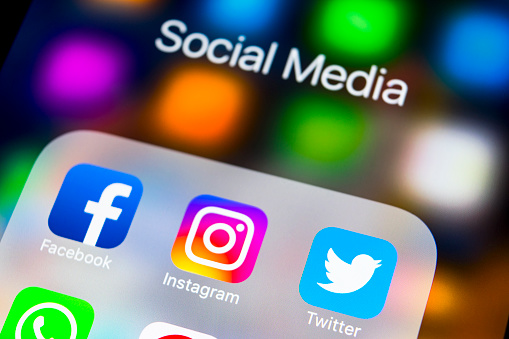

Welcome to "#SocialStocks," The Fly's weekly recap of Wall Street's reactions to social media stock news.
FACEBOOK BRANDING REDESIGN: On November 4, Facebook (FB) Chief Marketing Officer Antonio Lucio stated in a post to the company's website: "Facebook started as a single app. Now, 15 years later, we offer a suite of products that help people connect to their friends and family, find communities and grow businesses. Today, we're updating our company branding to be clearer about the products that come from Facebook. We're introducing a new company logo and further distinguishing the Facebook company from the Facebook app, which will keep its own branding. The new branding was designed for clarity, and uses custom typography and capitalization to create visual distinction between the company and app. People should know which companies make the products they use. Our main services include the Facebook app, Messenger, Instagram, WhatsApp, Oculus, Workplace, Portal and Calibra. These apps and technologies have shared infrastructure for years and the teams behind them frequently work together...Over the coming weeks, we will start using the new brand within our products and marketing materials, including a new company website."
On November 5, Twitter (TWTR) CEO Jack Dorsey posted a tweet that could be interpreted as a jeer at Facebook's (FB) all-caps re-brand. The tweet read, “Twitter from TWITTER.”
POLITICAL ADS: On October 30, Twitter CEO Jack Dorsey tweeted: "We've made the decision to stop all political advertising on Twitter globally. We believe political message reach should be earned, not bought. Why? A few reasons... A political message earns reach when people decide to follow an account or retweet. Paying for reach removes that decision, forcing highly optimized and targeted political messages on people. We believe this decision should not be compromised by money... While internet advertising is incredibly powerful and very effective for commercial advertisers, that power brings significant risks to politics, where it can be used to influence votes to affect the lives of millions... Internet political ads present entirely new challenges to civic discourse: machine learning-based optimization of messaging and micro-targeting, unchecked misleading information, and deep fakes. All at increasing velocity, sophistication, and overwhelming scale."
On November 1, Facebook COO Sheryl Sandberg doubled down on the company's stance on political advertising, telling Bloomberg that the company allowed the ads on free-speech grounds even though they didn't bring in much revenue and had caused controversy. Sandberg said in the interview that political ads are worth less than 1% of the social network's revenue and that the revenue made from political ads is "not worth the controversy" generated by the company's policy not to fact-check such ads, but she justified the firm's acceptance of such ads on free-speech grounds.
CONTENT ATTRIBUTION: On Monday, November 5, Adobe (ADBE) said, at Adobe MAX, the Content Authenticity Initiative, along with The New York Times (NYT) and Twitter, aimed at developing an industry standard for digital content attribution.The ability to provide proper content attribution for creators and publishers is critical to ensure trust and transparency online. Adobe, The New York Times Company and Twitter believe that creating a long-term solution is a shared responsibility among creators, technology, and media companies, and that joining forces will accelerate progress. "With the proliferation of digital content, people want to know the content they're seeing is authentic," said Dana Rao, executive vice president and general counsel, Adobe. "While this is a formidable challenge, we are thrilled to be championing the adoption of an industry-wide content attribution system, along with The New York Times Company and Twitter. It is critical for technology and media companies to come together now in order to empower consumers to better evaluate and understand content online." Adobe is developing an opt-in system that will allow creators and publishers to securely attach attribution data to content they choose to share. The framework is designed to let authors verify their content so that they receive proper attribution and provide consumers with an attribution trail to give them greater confidence about the authenticity of the content they're consuming. Adobe demonstrated a prototype of its content attribution technology embedded in Photoshop at Adobe MAX, the world's largest creativity conference.
